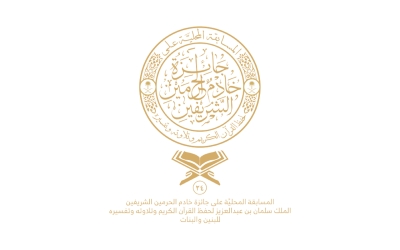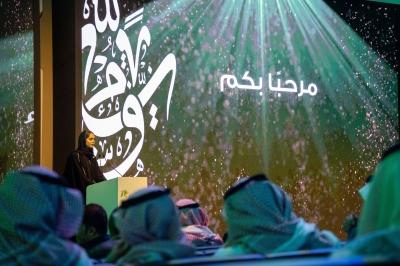
The King Abdulaziz Award for Folk Literature is the first award for folk literature in the Kingdom of Saudi Arabia and the highest in value worldwide, with a prize of up to SAR24 million. It is an annual award and one of the events of the King Abdulaziz Camel Festival, dedicated to camel racing, established in 2017. The King Abdulaziz Award for Folk Literature includes folk literature arts in three categories: al-Shailat (oral poetry), Nabati poetry, and poetry debate.
Significance
The King Abdulaziz Award for Folk Literature is presented in the King Abdulaziz Camel Festival in its new developed version to enhance the value of folk literature in expressing human emotions, supporting national identity, and documenting important stages in national history. The award also serves as a tribute to one of the sources of national history and the history of the Arabian Peninsula.
Objectives
The award aims to emphasize national unity and present the cultural and historical heritage in various forms, including Shailat, Nabati poetry, and poetry debate. It seeks to enhance the national cultural heritage in the minds of young generations, revive the authentic heritage in Saudi society, support and enrich the national cultural library, and promote creativity.
Branches
The King Abdulaziz Award for Folk Literature supports the Arabic literature movement in the Kingdom and focuses on three oral literary arts in the local dialect, which are: al-Shailat, poetry debate, and Nabati poetry. The judging of these categories is undertaken by a specialized committee composed of senior folk literature experts in the Kingdom.
The award has allocated three prizes for each category, where the first-place winner receives SAR5 million, the second-place winner receives SAR2 million, and the third-place winner receives SAR1 million. It is open to creative individuals in this field, whether they are Saudis or citizens of the Gulf Cooperation Council (GCC) countries.
Related quizzes
Related articles

